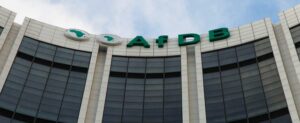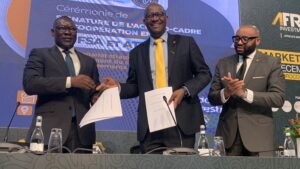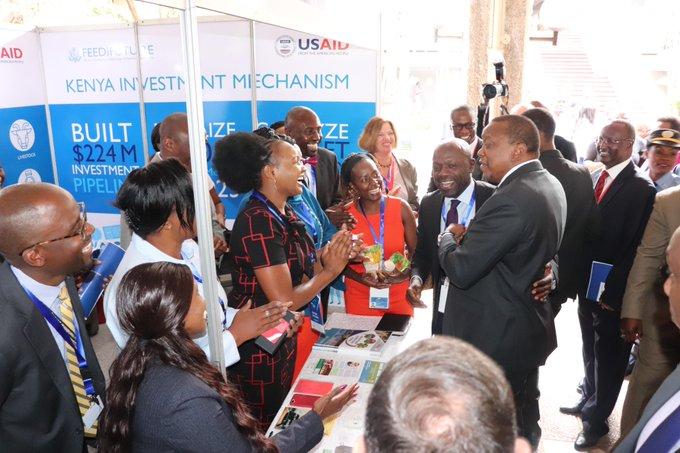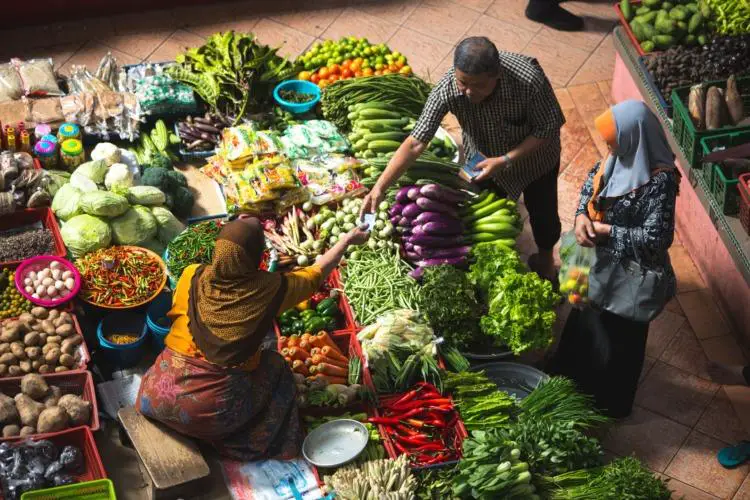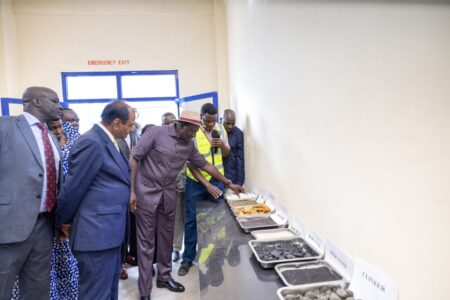US government in Kenya is developing several mechanisms that are helping small and medium companies in Kenya access local and American investors through raising equity, debt and capital injection. Several companies were part of the recently concluded AmCham Kenya business summit where they pitched their proposals to American investors.
The Kenya Investment Mechanism is funded by USAID as part of Feed the Future, the U.S. Government’s global hunger, and food security initiative. During its first year of implementation, it has built a network of transaction advisors and financial institutions that have mobilized $20.5 M of investments in Kenyan agribusinesses.
KIM is providing a comprehensive and integrated approach to financing actors and increasing competitiveness through the mobilization of capital into the horticulture, dairy, livestock, and clean energy value chains (VCs).
Through financial incentives, training, and technical assistance, KIM is building the capacity of Financial Institutions (FIs) and Business Advisory Services providers to facilitate private finance and investment to thousands of Small, Medium including Large Enterprises (SMiLEs) in the target value chains.
Samir Ibrahim CEO of SunCulture, a company that provides solar irrigation technology to smallholder farmers, explains: “Kenya Investment Mechanism was instrumental in our ability to raise working capital to expand our business. We are now well-positioned to impact more farmers.”
The Kenya Investment Mechanism is a five-year investment platform, that will mobilize $400 million of investments to key sectors of Kenya’s economy – agriculture and clean energy – with a focus on small and medium-sized enterprises. By mobilizing substantial capital from the public and private sectors, and building partnerships among enterprises, advisors, and financial intermediaries, the Kenya Investment Mechanism will enable broad-based, sustained, and inclusive economic growth in Kenya.
Feed the Future is the U.S. Government’s global hunger and food security initiative. With a focus on smallholder farmers, particularly women, Feed the Future supports partner countries in developing their agriculture sectors to spur economic growth and trade that increase incomes and reduce hunger, poverty and undernutrition.
Concurrently, KIM will lead policy reform efforts focused on removing barriers inhibiting large-scale investment into the target sectors, therefore unlocking further finance.
The two objectives of KIM will result in the project serving as an investment platform that mobilizes substantial capital from the public and private sectors and builds partnerships between stakeholders in the financial ecosystem, ultimately contributing to USAID Kenya and East Africa’s Feed the Future and Power Africa overall goal of fostering broad-based, sustained, and inclusive economic growth in Kenya.
Key among companies that are already enrolled in the KIM are Eldoville, a pioneer small dairy processor, as well as Meru Greens a major actor in vegetable and fruit production, processing and distribution which is seeking $ 1 million of working capital and an extra $800,000 for processing equipment.
Other companies include logistic firm Lori Systems, cereal aggregator Primax Agencies, livestock health company Sidai Africa and leading machinery supplier BrazAfric.
